
From the Himalayan mountains to the New York City streets, people share how they wake up every day
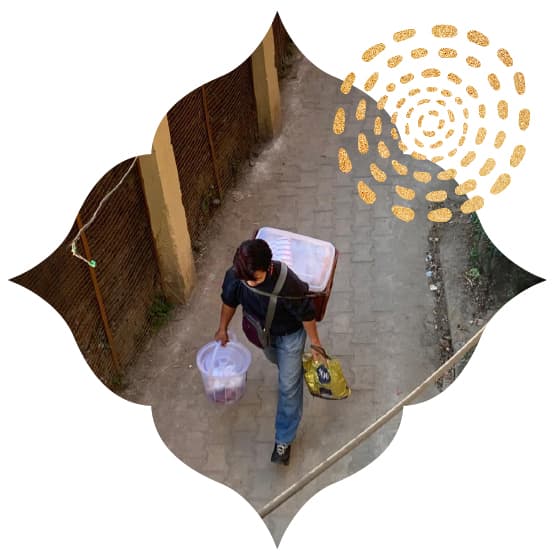
The Call of the Tibetan Bread Seller
By Tenzin Chemey
When my phone alarm rings to the tune of “Early Riser” at 6:30 a.m. on weekdays, my room is already filled with the sound of the giant prayer wheel being swung at full speed at Nechung Monastery, located right below the building where I live in Dharamshala. I say my prayers in respect to the Twenty-One Taras. Putting on my wool socks with Tibetan designs knitted by my mother, I take Anna Burns’s novel Milkman out on the small balcony for some fresh air blowing from the Dhauladhar Mountain range.
At 7:30 a.m., I wake my daughter. As she recites her multiplication table and Tibetan grammar text, I make butter tea to mix with tsampa, for that is the traditional food Tibetans eat on Wednesdays, the soul day of the Dalai Lama. Observing the day is a way to express devotion to the Dalai Lama and symbolically unite all Tibetans. On other days, I make a thin round bread called bakleb, which my daughter loves to eat with Nutella. In an hour, I am ready to take the ten-minute walk to my office dressed in a chupa, a gown worn by Tibetan women.
A couple parts of my morning routine change on weekends””my phone alarm sleeps and breakfast sometimes turns into a brunch. But one thing never changes, not even on weekends. I always half-awake to the loud call of a young Tibetan bread seller who walks in the street below, calling out for anyone who wants to buy his bread. His announcement comes before my phone alarm goes off.
On the threshold of consciousness in my half-awake state, I count how many items he is selling. Today he has four: white bread, a deep-fried bread called numtrag bagleb, doughnuts, and fried cookies called khabsey. My admiration for all hard-working people grows as I hear him, making my first feeling of the day one of inspiration.
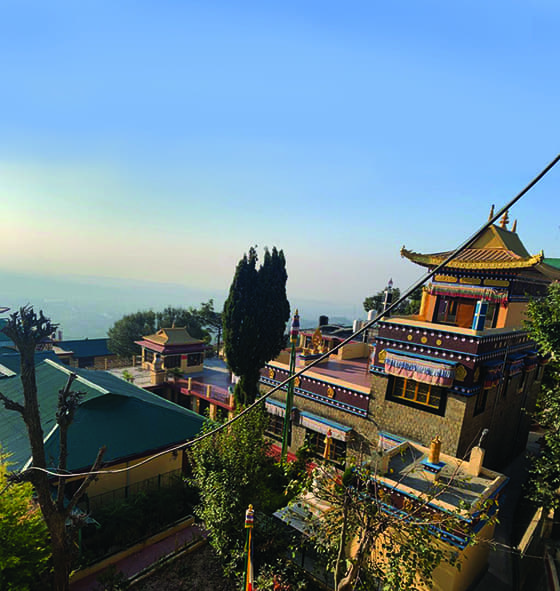
Tenzin Chemey is a second-generation Tibetan woman born in exile in India. Her love of writing, particularly poetry, is inspired by her childhood in a Tibetan settlement camp and higher education in India and the United States. She currently lives in Dharamshala, a small town in northern India, where she works as the content producer of Tibet TV.
Walk Therapy
By Meera Nair
I found my new morning routine at the height of the pandemic, when the sirens wailing day and night wouldn’t let me forget that I was in the epicenter and people were dying just yards away from me at Elmhurst Hospital in Queens, New York.
Eight months later I am still walking, heading out early every morning to 34th Avenue, the open, car-free street in the heart of Jackson Heights. There’s a gladness to the routine””waking up, lacing on shoes, putting the leash on the dog, getting the body in motion.
There is joy in turning the corner to find my friend waiting.
To walk every morning is to reclaim space and time, and those three miles help me shape my day and make it mine, before it disappears into a blur of work and anxiety about the virus.
We walk and I try to empty my mind into the moment; here then are my feet on the ground, here then are my fingers holding the leash, here is the breeze on my face and the sun in my hair, here are my ears listening to the birds in the trees above.
Here I am still, alive, breathing, alive.
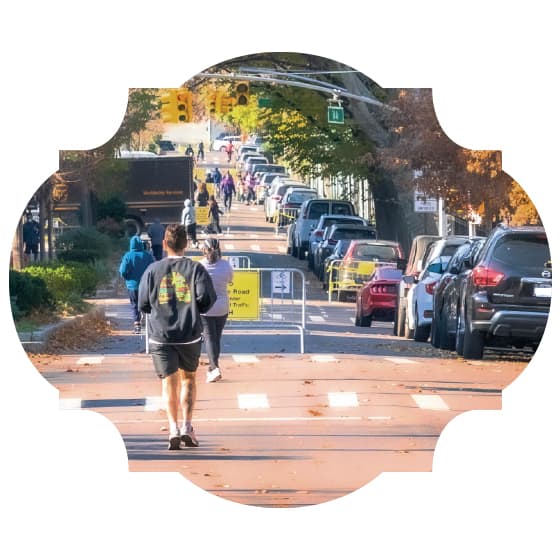
Meera Nair is the author of Video and two middle-grade children’s books. Video received the Sixth Annual Asian American Literary Award and was named a Best Book of the Year by the Washington Post. Nair’s work has appeared in the New York Times, Washington Post, Guardian, NPR’s Selected Shorts, and Guernica, among other publications. She teaches creative writing at New York University and co-founded the reading series #QueensWritersResist.
A Cup of Boiled Water
By Tsewang Chuskit
Ten days ago, I returned to my hometown of Ladakh, where I am living with my aunt and cousins while taking my Naropa Fellowship classes online. We sleep in the same room, as Ladakh is too cold to sleep in different places. My aunt wakes up around 6:00 a.m., and her murmured prayers while she makes her bed also wake me. One needs extra strength to wake up to no heat. I stay in bed until she heats the bogar, the local heater, in the kitchen. She pours me a cup of boiled water and leaves it on the table.
While I drink my hot water, my aunt reads her prayer books, inspiring me to say a prayer when I go outside to use the bathroom and breathe some fresh air. In the United States, I am not a morning person, but Ladakh’s fresh air and my aunt’s prayers make me love mornings here. We wake my cousins when the sun rises and make them wash their hands. I usually help my youngest cousin with English and Hindi readings. It is a routine in most households for children to read aloud each morning; I used to do the same when I was small. While helping my cousin pronounce her words, my aunt and I make chapatis for breakfast. She rolls the dough, and I make the chapati on the stove. We all sit around the local heater and have breakfast and tea, until 10:00 a.m. when my Zoom classes begin.
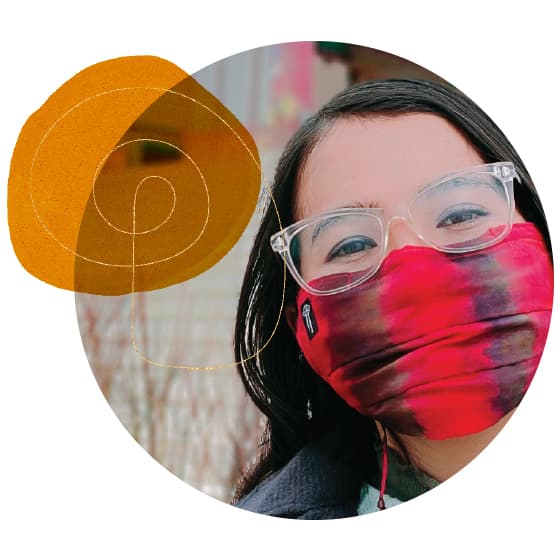
Tsewang Chuskit recently graduated from Smith College in Massachusetts with a degree in education. She completed a summer internship with Silk Road Spaceship, a women’s dyeing and sewing enterprise, and learned about how companies create opportunities for women to be financially independent. Chuskit is currently doing a Naropa Fellowship in Social Entrepreneurship.
A Time for Family
By Tsewang Chozom
For me mornings are the most auspicious time of day. They begin in the family prayer room in our home in Kathmandu. Having watched and learned from my parents since childhood, I offer water in the seven bowls to our deities, light incense and a butter lamp, and do my thirty daily prostrations. Soon my mother-in-law, husband, and two teenage children join me in chanting mantras followed by pranayama, breathing yoga. We dedicate these prayers and offerings to all sentient beings, especially for the vulnerable during this pandemic. This ritual has been in the family for generations, and I feel blessed to continue it.
I then prepare breakfast, which can be tsampa (roasted barley), leftover noodles from dinner, or roti with masala omelet, along with butter tea. Because of the pandemic, these days we enjoy every meal together and spend them talking about the children’s online classes and current events.
After breakfast, I walk five minutes to Wind Horse Gallery, where I go through the mail and social media, and if fortunate, meet up with an artist. Last Saturday I had a wonderful conversation with Hyolmo Pasang la, a thangka painter with twenty-five years of experience. Over sweet tea, I showed him images I had just received of his art hanging in a collector’s home. I love looking at art, but for me every minute with an artist is especially precious and magical.

Tsewang Chozom is a mother of two, homemaker, and gallerist in Kathmandu. She is a co-founder of Wind Horse Gallery, a space that supports Himalayan artists. She enjoys conversations with artists who come from the far remote valleys and mountains of the Himalayas. You can follow many of these artists on Instagram @windhorse.gallery.
For the Benefit of All Beings
By Lopon Pema Wangdak
As an ordinary Bhutanese Buddhist monk, my day starts with morning prayers at the shrine, including meditation and offerings of water, incense, flowers, and food. Every house in Bhutan has at least a simple shrine for their prayers. The morning prayer takes around thirty minutes to one hour. As a Buddhist practitioner one is always encouraged to pray not only for oneself but also for the benefit of all sentient beings.
Breakfast starts after the morning prayers and includes butter tea and rice with ema-datse, a chili curry with cheese.
Recently I went on a pilgrimage to Guru Rinpoche’s sacred places across Bhutan. The virgin mountains, lush green forest, perfect weather, and fresh air made for a soothing journey. Our group of five drove, hiked, pitched tents, cooked, prayed, hoisted prayer flags, chanted mantras, and made offering for the well-being of all sentient beings and to overcome the pandemic, especially at this time. The morning prayers and mantra chanting are the same whether we are at the monastery or on pilgrimage. But starting the day at these sacred places with their natural ambiance makes it easy to connect with the spiritual energy. Unlike at the monastery, we are able to feel the connection between the great masters and their sacred places. Sometimes our morning routine included invitations from relatives to recite prayers and perform rituals in their homes.
In a nutshell, a monk’s morning ritual is always to practice for the benefit of all beings.
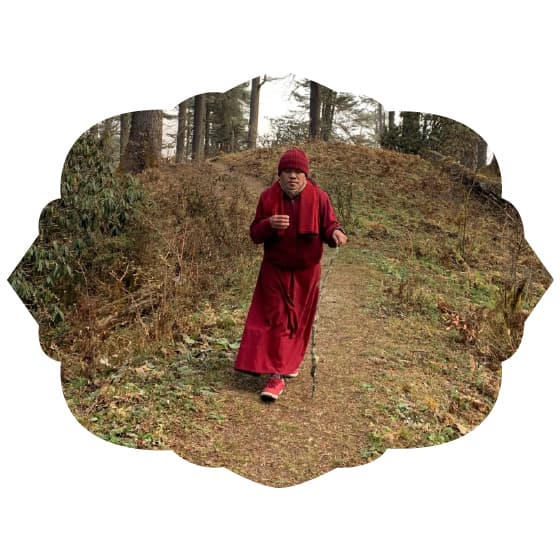
Lopon Pema Wangdak is an ordained Buddhist monk and teacher at the Ngagyur Nyingma Institute at Bylakupee in Mysore, India. Born in Bhutan in 1985, he chose a monastic life at age twenty-one, enrolling in Namdroling Monastery, where he learned Tibetan Buddhist philosophy and practices for nine years. He has twice participated in the Gross National Happiness Youth Leadership Program in Bhutan, as well as a cultural exchange program in Worcester State University in the United States.
Sacred Time
By Luna Ranjit
Mornings are my sacred time. I try to protect it from the encroachment of social media feeds, nonstop news cycles, and life obligations. I keep my bedroom screen-free so that I can wake up mindfully without the siren calls of the blue bird””a practice I established to carve out some respite in my hectic schedule when I was a nonprofit director that has stayed with me. Real birds chirp outside my fourth-floor apartment window in Jackson Heights, Queens, as the neighborhood slowly stirs awake.
As soon as I step out of my sanctuary, however, I check my phone. I make sure there is no overnight urgent message from my almost eighty-year-old mother who lives alone in Kathmandu. This is a reality of immigrant life, living far away from loved ones.
On most days, right after breakfast, I sip my morning chya, milk no sugar, and video chat with my mother””she is winding down her day as I am starting mine””and feel grateful for the tools that help us transcend the distance and for her moxie to tackle new technology well into her seventies.
I then open my laptop to a deluge of emails and to-do lists, and the day goes by in a blink.
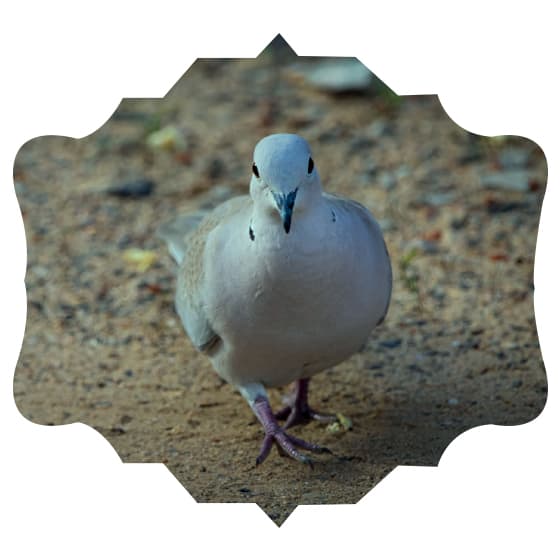
Luna Ranjit writes essays and poems. Her writing is inspired by her experience organizing for the rights of people on the margins in the United States and South Asia. She is a co-founder of Adhikaar, an organization building the power of new immigrants, and the New York Healthy Nail Salons Coalition. Find her on twitter @LunaRanjit and at lunaranjit.medium.com.
Elevated Care
By Tsering Sangmo
At an elevation of 4,600 feet, Kathmandu is cold in autumn mornings. These days I am helping a seventy-eight-year-old Tibetan granny who had a hip replacement a few months ago. We sleep in the same room in two single beds. Granny wakes before me, because she goes to sleep earlier in the night. Once she wakes she does her hip exercises and daily prayers.
I wake up around 5:00 a.m., wash my face, brush my teeth, drink warm water, and do my readings. At 6:00 a.m., I give granny her medicine and make her barley porridge. As she eats the porridge, I make our breakfast: four boiled eggs, four tortillas, and two cups of milk tea. While I cook I do my prayers, which I can recite from memory. We eat breakfast, then granny slowly gets out of her cozy bed while I do the dishes. I fold granny’s blankets and make her bed, while granny washes her face. I follow granny into the prayer room and help with her water and lamp offerings. While granny does her prayers, I do three prostrations and prepare to leave. At 8:30 a.m. I walk ten minutes to my apartment to attend classes online and study. I’ll return to granny’s that evening, and the routine goes on.
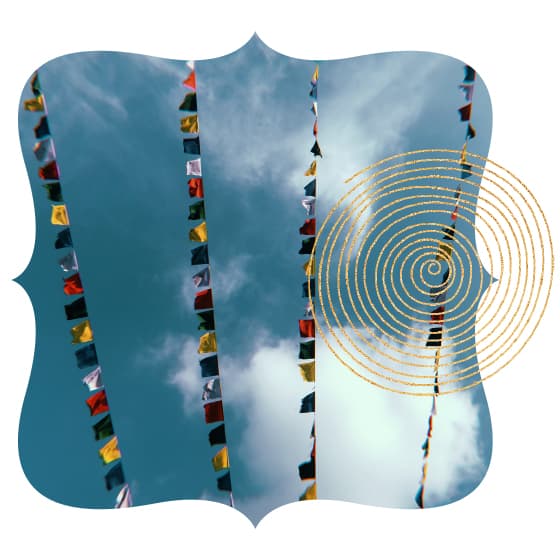
Tsering Sangmo is a student at Sowa Rigpa International College, studying the science of traditional Himalayan and Tibetan medicine. She is from the hidden valley in the Himalayan region of Dolpo in western Nepal and currently lives in Kathmandu. Read more about her life and studies at tsesangsorignews.wordpress.com.
Turning the Wheels
By Eshay Tobgyal
Except for a few months in the summer, the weather in Ladakh is mostly cold and dry, so getting out of my warm, cozy bed is difficult. It’s mostly sunny throughout the year, with a clear, blue, cloudless sky. My room faces the southeast, so every morning I wake up with sunshine gleaming into my room and a majestic view of the Stok Kangri Mountain range. The sight of the beautiful mountains starts my day on an inspiring note. Sometimes I have a traditional breakfast of butter tea, local bread called khambir, and dried meat. Other times it’s bread and eggs with milk or tea.
The mountain biking scene has been picking up in Leh, so almost every morning I go mountain biking with a small group of riders. There are some beautiful downhill sections near my home. The terrain and the slope are perfect for a downhill freeride, although the climb is ten times more difficult. After the ride we stop at a local tea shop where we have Indian masala tea and samosas.
Mountain biking has become an intrinsic part of my life during the pandemic. Starting my day on this note not only fills me with gratitude for being born in Ladakh but also motivates me to give back to my community and land.
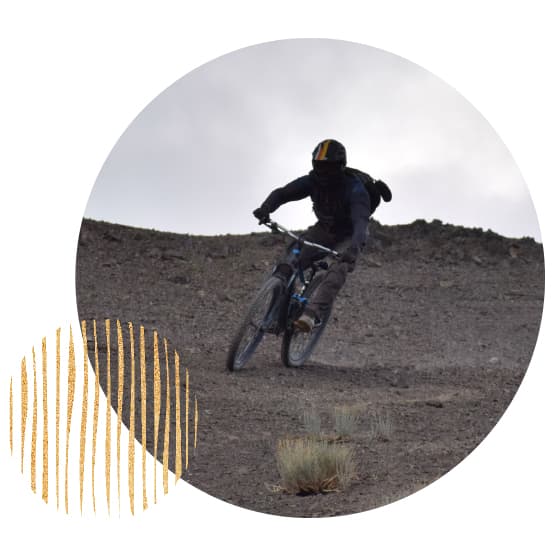
Eshay Tobgyal is a resident of Leh, Ladakh, and a graduate of Shri Ram College of Commerce, Delhi University. After working for KPMG and OYO, he returned to his hometown and started the first backpacker hostel called Raybo. He is now venturing into the field of agriculture. Tobgyal is passionate about Tibetan art and mountain biking, and he is a part of a local football (soccer) club.


